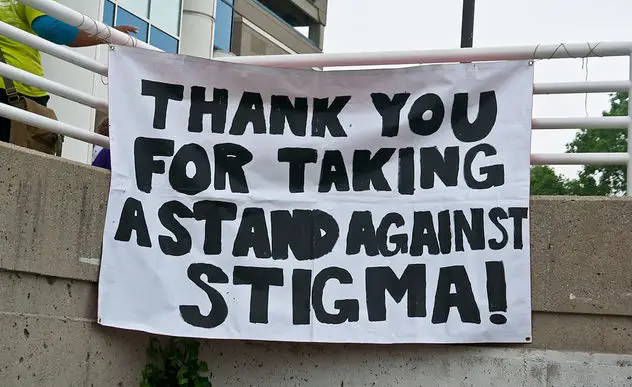This in from IW NHS Trust. Ed
Mental Health problems are common but people who experience them say they face stigma and discrimination as a result. This can be even worse than the symptoms themselves.
Mo Smith, Lead Nurse for Mental Health & Learning Disabilities at IOW NHS Trust and colleagues, will be offering advice and support on a wide range of mental health issues. Other support services such as the Suicide Support Group, Learning Disabilities support group and IWish, a support group for people who self harm, will also be in attendance to offer help and advice. The team will be based in the main foyer/entrance at St Mary’s Hospital on 10th October from 10am until 4pm.
One in four affected by mental illness
Commenting on World Mental Health Day, Mo Smith, said
“We all have mental health, like we all have physical health. Both change throughout our lives. And, like our bodies, our minds can become unwell.
“Mental health problems might actually be more common than you think. One in four of us will be affected by mental illness in any year. The effects are as real as a broken arm, even though there isn’t a sling or plaster cast to show for it. It’s quite likely that one day you, one of your friends, colleagues or family members will experience a mental health problem. Yet mental illness is still surrounded by prejudice, ignorance and fear. Many people say that being discriminated against in work and social situations can be a bigger burden than the illness itself.”
Some attitudes towards people with mental health problems mean that it is harder for them to work, make friends and in short, live a normal life. This means:
- People become isolated
- They are excluded from everyday activities
- It is harder to get or keep a job
- People can be reluctant to seek help, which makes recovery slower and more difficult
- Their physical health is affected.
The Time to Change programme
Time to Change is England’s biggest programme to end discrimination faced by people with mental health problems. Time to Change are launching their campaign on the 10th October showing that it’s often the little things that people do that can make a big difference to someone experiencing mental health problems.
Following extensive stakeholder engagement with organisations and individuals affected by mental health and suicide across the Island the Isle of Wight Clinical Commissioning Group (CCG) and partner agencies – Hampshire Constabulary, Isle of Wight Council (including social care and public health), Isle of Wight NHS Trust and the Voluntary Sector have published the final versions of the following two strategies:
Isle of Wight No Health Without Mental Health Strategy 2014-2019
Isle of Wight Suicide Prevention Strategy 2014-2019
The strategies span five years, with a two year action plan that will be reviewed annually.
This is being supported by the Island’s Health and Wellbeing Board and the – ‘My Life A Full Life’ programme.
Isle of Wight No Health Without Mental Health Strategy 2014-2019
The Mental Health Strategy looks at mental health and wellbeing on the Island and in particular focuses on vulnerable groups such as looked after children, people with long term conditions, older people, people known to the justice system and veterans. The strategy identifies three priorities:
- Prevention and early intervention for mental health and well being
- Improved recovery and access to mental health support
- Reducing the stigma and discrimination through stronger communities
The strategy can be downloaded from the CCG website.
Isle of Wight Suicide Awareness and Prevention Strategy
The Suicide Prevention Strategy will sit under the No Health without Mental Health Strategy and is an all partner strategy and action plan to:
- Reduce the suicide rate in the general population on the Isle of Wight.
- Increase support for those bereaved or affected by suicide.
The strategy looks at both national and local policies and outcomes and considers six priority areas:
- Reducing the risk of suicide in high risk groups
- Tailor approaches to improve mental health in specific groups
- Reducing access to the means of suicide
- Better information and support for those bereaved or affected by suicide
- Support for media in delivering sensitive approaches to suicide and suicidal behaviour
- Support research, data collection and monitoring
The strategy can be downloaded from the CCG website.
Image: stevendepolo under CC BY 2.0





